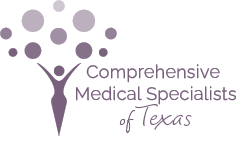Tackling Menopause Symptoms With PRP
We understand that going through menopause comes with it’s own slew of issues. Everything from hot flashes to mood swings to vaginal dryness can negatively impact your everyday life, during and after menopause.
But there is one lesser spoken about menopause symptom that may be affecting your quality of life as well — hair loss.
If you are looking for information on why this menopause symptom is happening during and after this transition, as well as how to best manage it, read on.
Hair Loss: Understanding This Menopause Symptom
For almost all issues in life it’s important to understand the cause before looking for a solution. The same goes for hair loss during and after menopause.
Menopausal Hair Loss
As stated by the Cleveland Clinic, female pattern hair loss (FPHL) is the most common type of hair loss in women, and this type of hair loss often worsens during menopause.
But why does it worsen during this lifestage?
Research suggests that FPHL can be the result of hormonal changes, hence why it happens more frequently or worsens during menopause. According to the American Osteopathic College of Dermatology, “This is seen as hair thinning predominantly over the top and front of the head. It affects approximately one-third of all susceptible women, but is most commonly seen after menopause.”
Hair loss, however, is much less discussed than other menopause symptoms even though it is common. This is likely because it is not life-threatening and doesn’t have an affect on overall health. But while hair loss and hair thinning may not seem as “severe” as other menopause symptoms, it very commonly affects women’s self-esteem, in particular, and, therefore, their quality of life.
PRP for Menopausal Hair Loss
In the past, everything from medications to creams to transplants has been used to help those suffering from hair loss, all boasting varying results. But since hair loss can have such a major affect on daily life, sufferers were looking for a treatment that was safer, carried less risks, and boasted more consistent efficacy.
Enter the concept of platelet-rich plasma (PRP) scalp injections.
Harvard Medical School explained the concept of PRP injections, stating, “Platelets promote cell growth and regeneration. As the term “platelet-rich plasma” suggests, platelets are generally about five times more concentrated in PRP than in regular blood. This concentration of platelets is useful, because platelets secrete growth factors than are thought to assist in wound healing and tissue regrowth.”
So how does PRP impact hair loss? Harvard Medical School goes on to state that, “When it comes to hair loss, the theory is that platelets, injected deep into the scalp to reach the bottom of the hair follicle, may stimulate a specialized population of cells named dermal papilla cells, which play a critical role in hair growth.
Specifically, for hair loss during and after menopause, your body can use the amino acids that result from injections of PRP in the scalp to build back your hair proteins. The PRP will then accelerate the hair growth after receiving the injections.
What to Expect for PRP Scalp Injections
 Many menopausal hair loss sufferers are now considering or have already gone the route of PRP scalp injections due to not only the results, but also because of the minimal time commitment required. On average, this three-step process requires four treatments that occur within four to six weeks of each other for maximum results. To maintain lasting results, most patients will go back for treatments every four to six months.
Many menopausal hair loss sufferers are now considering or have already gone the route of PRP scalp injections due to not only the results, but also because of the minimal time commitment required. On average, this three-step process requires four treatments that occur within four to six weeks of each other for maximum results. To maintain lasting results, most patients will go back for treatments every four to six months.
Studies have shown positive therapeutic effects after scalp injections with platelet-rich plasma and have boasted quicker and more effective results with little to no side effects.
About Dr. Drake
Dr. Natalie Drake is a Menopause Treatment Specialist who pioneers the use of safe, alternative methods of women’s health procedures in the Houston, Texas area. Dr. Drake has a Bachelor of Science from the University of Oklahoma and a Medical Doctorate from the University of Oklahoma Health Sciences Center. She has a vast amount of experience in PRP injections for hair loss, providing compassionate care and producing tremendous results.
